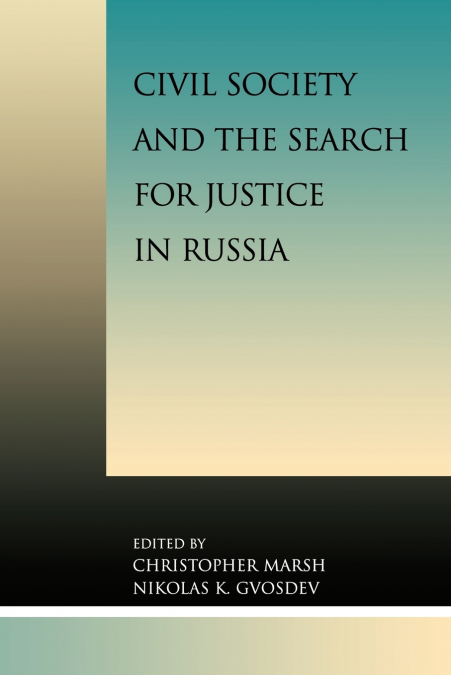
 Librería Perelló (Valencia)
Librería Perelló (Valencia)
 Librería Aciertas (Toledo)
Librería Aciertas (Toledo)
 El AlmaZen del Alquimista (Sevilla)
El AlmaZen del Alquimista (Sevilla)
 Librería Elías (Asturias)
Librería Elías (Asturias)
 Librería Kolima (Madrid)
Librería Kolima (Madrid)
 Donde los libros
Donde los libros
 Librería Proteo (Málaga)
Librería Proteo (Málaga)
More than a decade has passed since path-breaking policies aimed at liberalizing post-Soviet society were first introduced in Russia. Today, these promises of freedom, equality, and justice remain largely unfulfilled and Russia’s political system continues to exhibit signs of the deep-rooted problems that may well retard, if not completely derail, any possibility of future reform. Against this stark background, Civil Society and the Search for Justice in Russia explores the various dimensions of Russia’s civil society: the meaning of, and search for, justice; the role of the Orthodox church as a principal unifier in civil society; the need for new freedoms for women and ethnic minorities; and the role of mass education and the free press in inculcating and articulating new civic values. Expertly blending the historical with the theoretical, the recent with the empirical this work offers new insight and analysis into the ability of a nascent Russian civil society to engage effectively with the twenty-first century Russian state to ensure social, religious, and political justice.